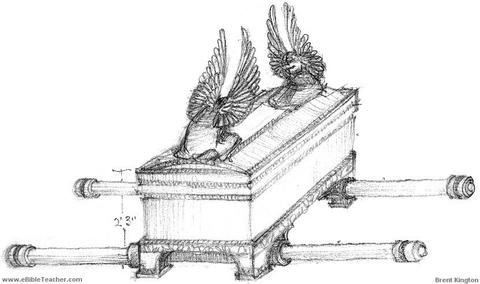And the men did so; and took two milch kine, and tied them to the cart, and shut up their calves at home: And they laid the ark of the LORD upon the cart, and the coffer with the mice of gold and the images of their emerods, And the kine took the straight way to the way of Bethshemesh, and went along the highway, lowing as they went, and turned not aside to the right hand or to the left; and the lords of the Philistines went after them unto the border of Bethshemesh. 1 Samuel 6:10-12
For seven months the ark of Israel's God had been in the land of the Philistines, and there was no longer any question with the Philistines that he was not under their power but that they were under his. The God of Israel had smitten them with the pestilence much in the same way he had smitten the Egyptians many years before. Everyone was covered with boils, open, sore and draining; many had died. It happened wherever the ark was brought, whether Ashdod, Gath or Ekron. No one could escape it. With swift destruction the hand of the God of Israel descended upon them. No incantation could drive it away. No form of medicine was able to heal. The invasion of mice which had gone before seemed bad at the time; but this was far worse. The damage done to Dagon in his temple was now all but forgotten because of the suffering that filled the land. The people cowered in fear.
At last the priests and diviners, the wise men of the Philistines, were called together to do something to save the nation. There was no longer any question what the trouble was. Everyone knew and took it for granted, as much as they disliked the thought. The ark of Israel's God had proved to be for them, not a great victory as they had first expected, but their curse. The only question for these learned men was, "What shall we do to the ark of the Lord? tell us wherewith we shall send it to his place." The ark of Jehovah had to be sent away. The only thing they feared was that they might not do it in the right way so that still greater judgments might descend upon them.
















